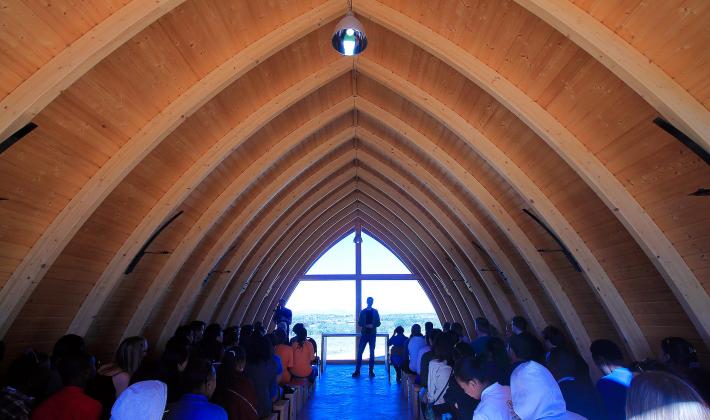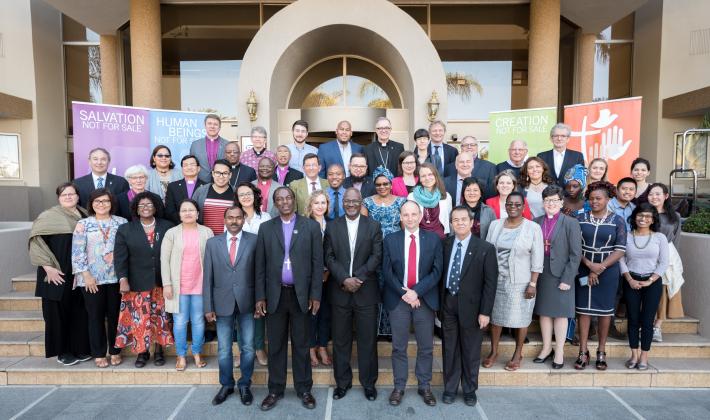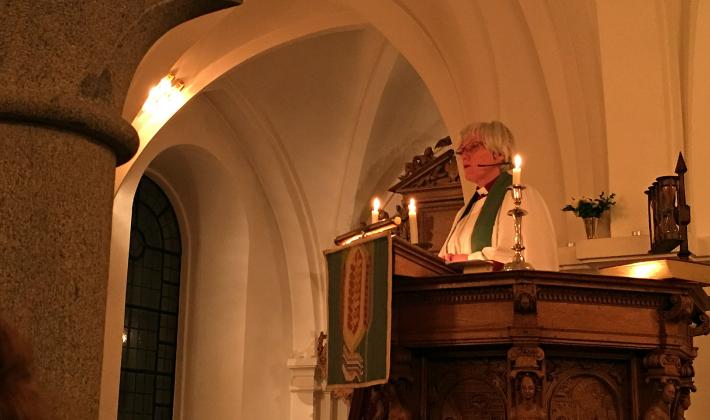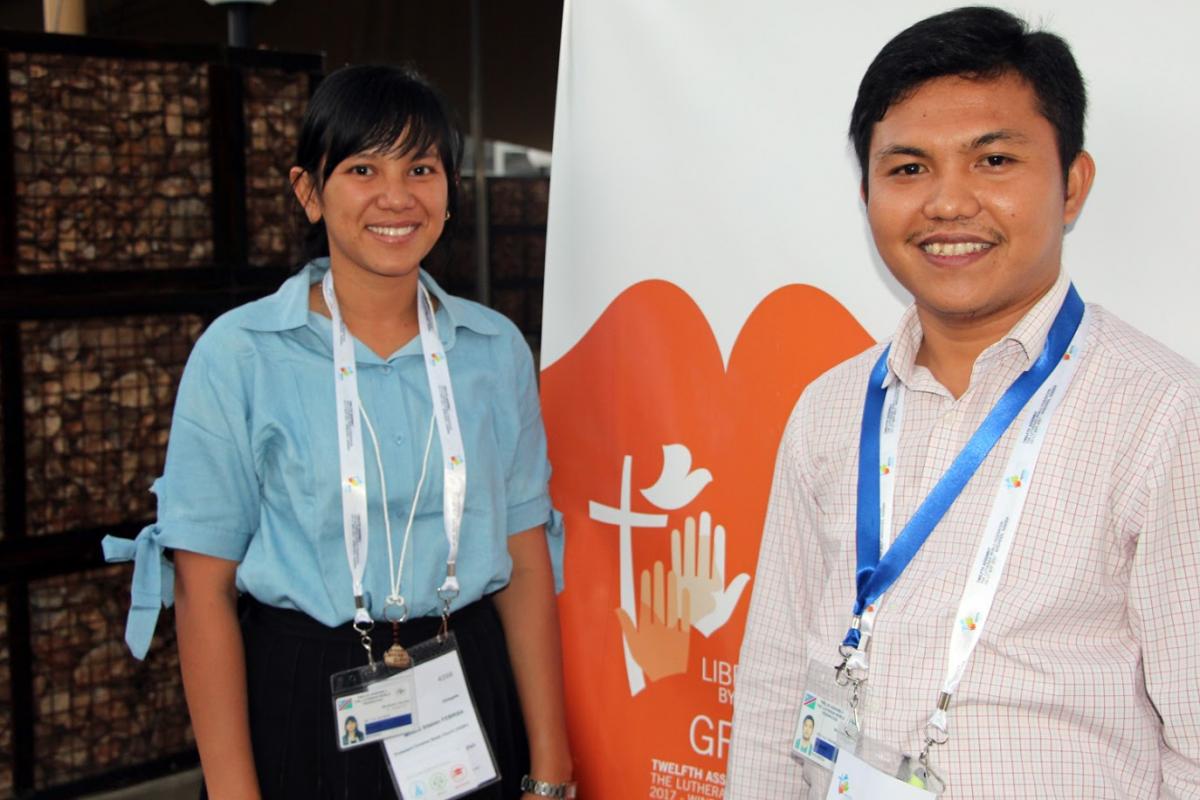
Omatala is an Oshiwambo word for “marketplace”. At The Lutheran World Twelfth Assembly, the Omatala is a space for encounter, creativity, transformative action, visioning and story-telling.
At the Omatala workshop titled Enhancing Dialogue and Cooperation: The LWF Interfaith Network, interfaith activities in Tanzania, Germany, Indonesia and the United States were shared and a platform for exchange and joint reflection was presented.
Safe conversations
One effective way to have a meaningful interfaith relation is to begin with conversations. Conversations create a safe space for opinions to be shared and heard without fear or prejudice.
“We in the Evangelical Lutheran Church in Bavaria, not only encounter people of other faith but we develop basic principles so that we begin our conversation by first understanding our own Christian standpoint,” says presenter Rev. Dr Maria Stettner, from the Evangelical Lutheran Church in Bavaria, Germany.
“I know there are ambiguities when it comes to people of other faith, we need our church leaders to propagate trust,” says participant Titi Malik, The Evangelical Lutheran Church in Nigeria.
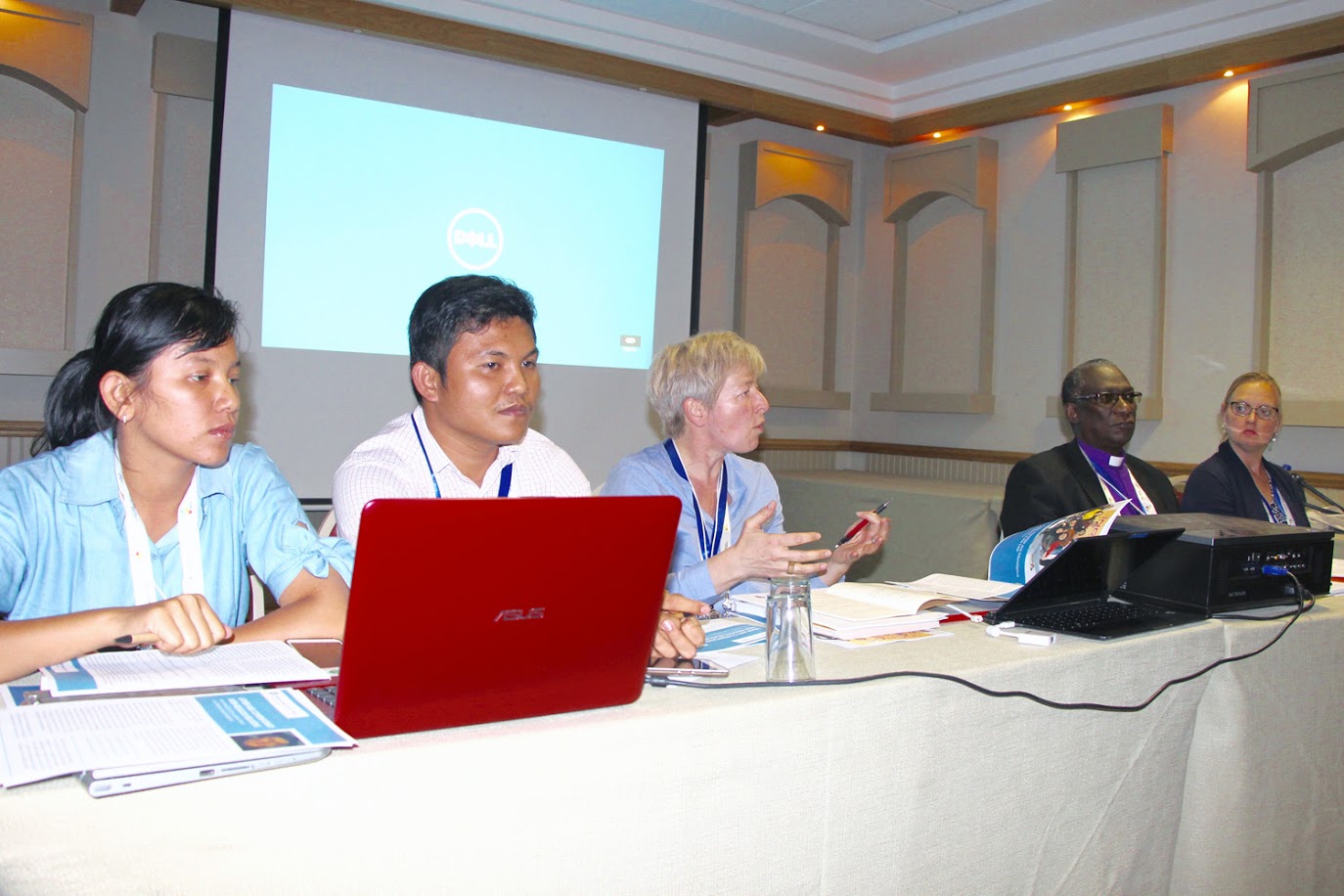
Safe conversations create an environment mindful of others and foster a level of comfort with the goal of avoiding conflict or insult that could be initiated due to inexperience, unfamiliarity or misunderstanding.
Strengthening relationships
Peace-building is an important area, where religious leaders can come together for a meaningful participation that will in return turn into transformative actions.
Presiding Bishop Dr Frederick Shoo, Evangelical Lutheran Church in Tanzania, said in his presentation that Tanzania is a good example how people of other faith are living together in peaceful coexistence.
In the Island of Zanzibar, a semi-autonomous part of Tanzania in East Africa, 95 percent of the population is Muslims and only 5 percent Christians but they enjoy freedom of faith and live peacefully with one another.
“For us in Tanzania, the sense of belonging to one nation prevails the sense of our religious affiliation,” he says.
“We ask youths from one particular religion to live with a family of another religion, in this way they get to experience and share values that strengthen their relationship and peace becomes a reality, not an abstract idea,” said Febrisa Silaban, delegate and presenter Huria Kristen Batak Church, Indonesia, who is part of a program called Interfaith New Generation Initiatives and Engagement (INGAGE).
Next steps
Participants were encouraged to be ambassadors and enhance interfaith dialogue and cooperation.
Kathryn Lohre, Evangelical Lutheran Church in America, shared a publication from her church entitled Engaging Others, Knowing Ourselves: A Lutheran Calling in a Multi-Religious World which provides narratives of fifty stories of inter-religious engagement from local ministry settings, supplemented by practical tips, theological reflection and historical analysis.
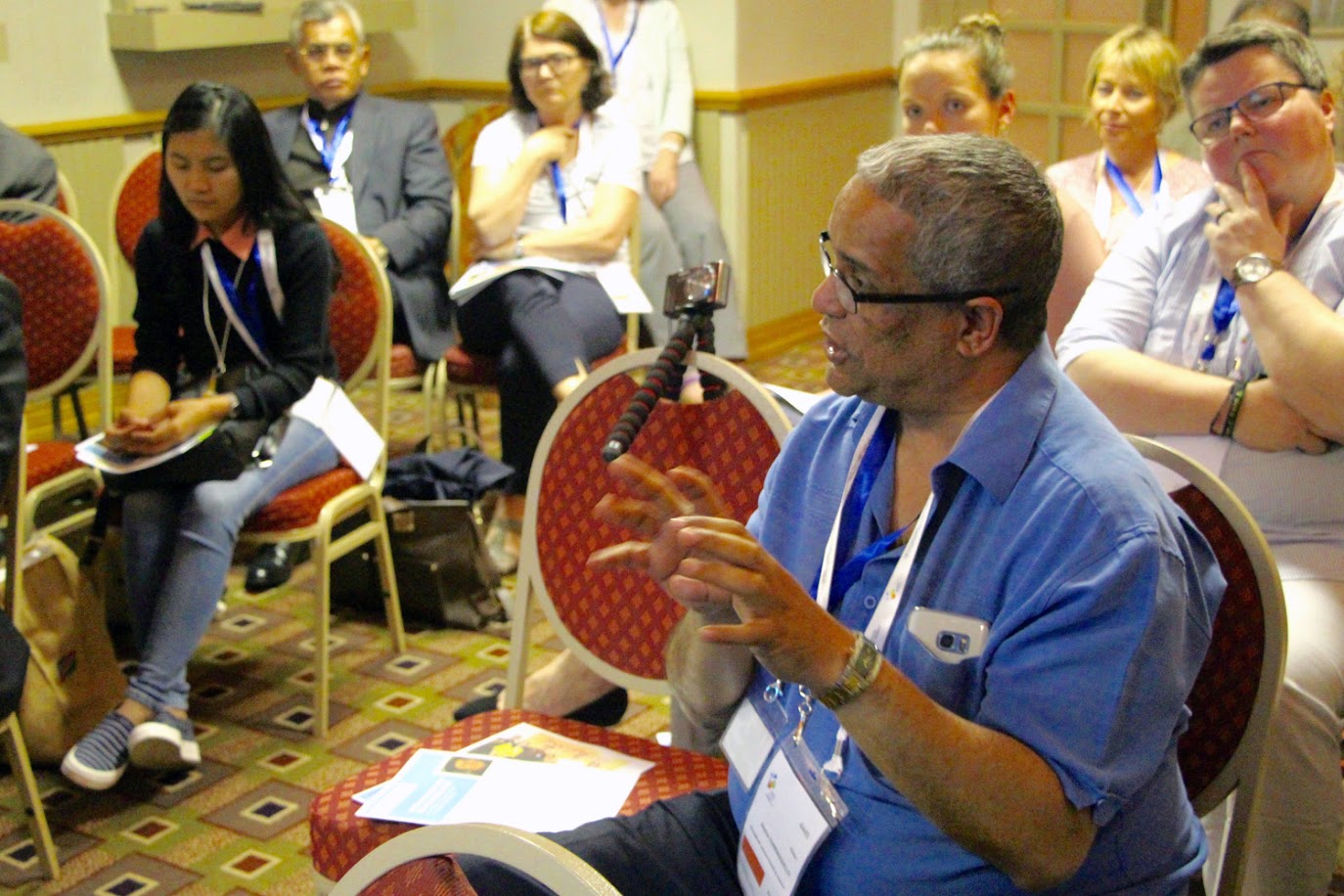
Katherine Altenburg, workshop participant and delegate from the Evangelical Lutheran Church in Canada, reflected on the workshop in the context of the attacks on Jewish community centers, synagogues, and cemeteries that occurred in Canada earlier in 2017. Following the attacks, “I felt the need to move, to work together with people of other faith, building relationships, to claim it in the public space as Christians,” she says. In a sign of solidarity, “There are now signs French, Arabic and English, in my neighborhood in Quebec City and in front of churches and homes that say ‘No matter where you are from, we are glad that you are my neighbor.’”
LWF/Steven Lawrence

